
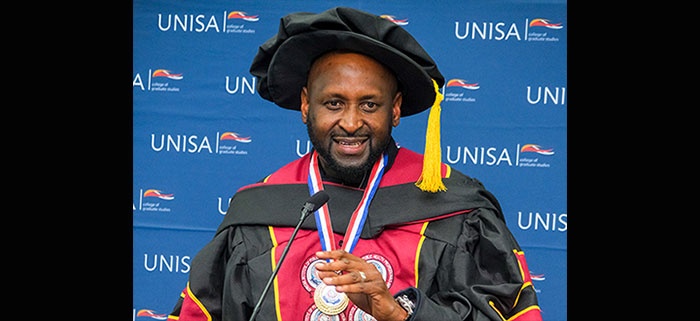
Prof Tennyson Mgutshini inducted as an AIPHP fellow
Unisa’s College of Graduate Studies (CGS) recently celebrated a proud milestone in postgraduate education and research at the 7th Annual International Public Health Conference hosted by the African Institute of Public Health Professionals (AIPHP).
The event, held from 11 to 13 November at the Gallagher Conference Centre in Midrand, brought together leading health professionals, researchers and policymakers from across Africa to tackle pressing health challenges and explore pathways toward universal health coverage (UHC).
A highlight of the conference was the induction of Prof Tennyson Mgutshini, Executive Dean of CGS, as a fellow of the AIPHP. This honour recognises his outstanding contribution to advancing public health in Africa and underscores Unisa’s growing leadership in health education, research and community development.
The conference opened with a keynote address by Dr Nicholas Crisp, Deputy Director-General of South Africa’s Department of Health, who spoke about the country’s plans to implement National Health Insurance. His presentation set the tone for discussions on building resilient health systems capable of responding to both current and future challenges.
CGS played a prominent role in the conference, which was co-hosted with partners including Sefako Makgatho Health Sciences University, Tshwane University of Technology, the Institute for Health Professionals Development in Sierra Leone, and Best Health Solution, a non-profit organisation focused on addressing gaps in public health.
In his address, Mgutshini emphasised that public health provides an ideal platform for preparing postgraduate students to lead in complex, real-world settings. He explained that the field extends beyond clinical care to include policy, environments, social determinants and behaviour, giving students exposure to diverse ways of thinking and working.
He emphasised the importance of multidisciplinary collaboration, interdisciplinary integration and transdisciplinary engagement, grounded in theories of systems thinking and stakeholder participation. These approaches, he argued, help students develop critical skills such as analytical reasoning, ethical judgement, cultural competence and the ability to work across sectors.
Mgutshini pointed out that postgraduate students benefit directly from hands-on research, community engagement, policy translation and teamwork experience. The Covid-19 pandemic, he noted, demonstrated how diverse expertise and strong partnerships can turn research into action. He urged universities and funders to embed integrative, experiential training into curricula and to support collaborative projects that prepare graduates to address challenges such as climate change, health inequities and future epidemics.
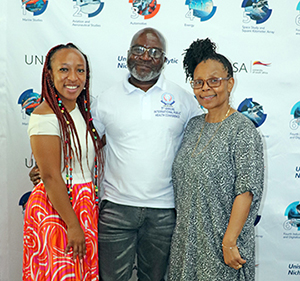
PhD candidates at the conference, from left: Veronica Phetla, Busani Moyi and Mpho Kate Mholo
As part of its strategic commitment to nurturing postgraduate excellence, CGS funded the registration fees for master’s and doctoral students to attend the conference. This initiative reflects the college’s mandate to capacitate students in writing for publication, amplify emerging scholarly voices and promote research excellence through exposure to international platforms.
Students participated in a postgraduate roundtable, presenting research linked to Unisa’s catalytic niche areas (CNAs) in health studies and student support. The platform enabled them to refine their communication skills, receive feedback, and engage with senior academics and public health leaders, thereby opening doors to future collaborations and scholarly networks.
Various workshops further strengthened postgraduate development. A scientific writing workshop equipped students with tools to publish in accredited journals, while a CNA optimisation workshop helped align individual research with Unisa’s catalytic niche areas, our transformation agenda, and our commitment to ensuring societal relevance and transdisciplinary impact.
By covering registration fees for eligible students, CGS made a strategic investment in postgraduate development. This initiative reflects Unisa’s commitment to nurturing scholarly excellence, amplifying emerging voices and advancing research that responds to Africa’s developmental needs. The recognition of Mgutshini and the active involvement of Unisa’s postgraduate students at the conference demonstrate the university’s growing impact in shaping the future of public health across the continent.
* By Hanli Wolhuter, Communication and Marketing Specialist, College of Graduate Studies
Publish date: 2025-11-25 00:00:00.0
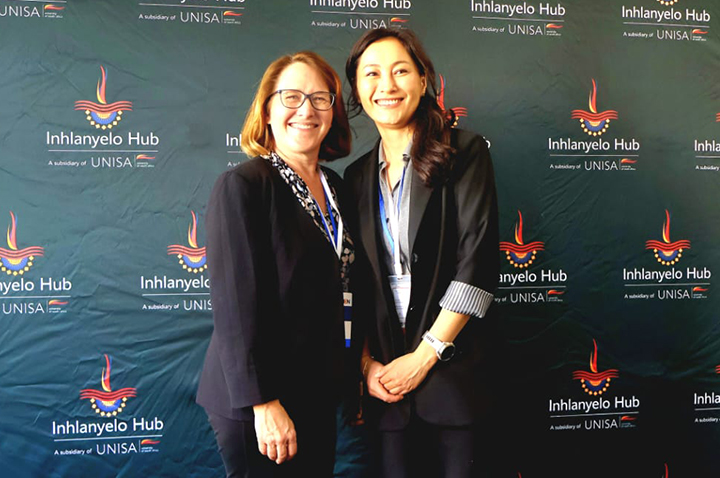 Unisa roundtable focuses on empowering SA women to lead in innovation
Unisa roundtable focuses on empowering SA women to lead in innovation
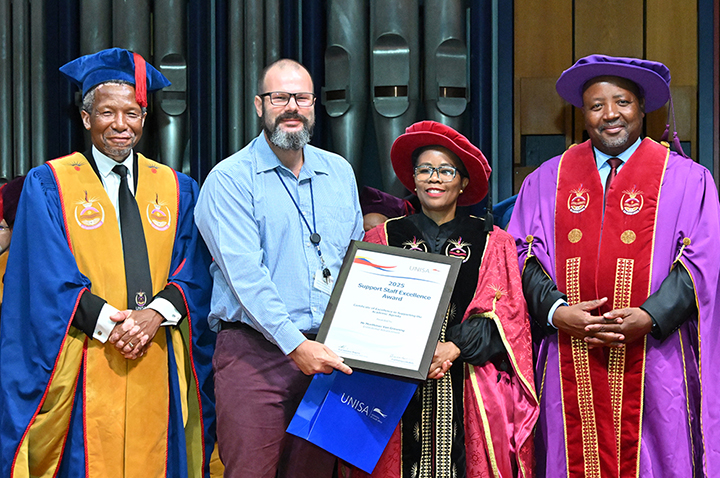 Unisan recognised for web excellence
Unisan recognised for web excellence
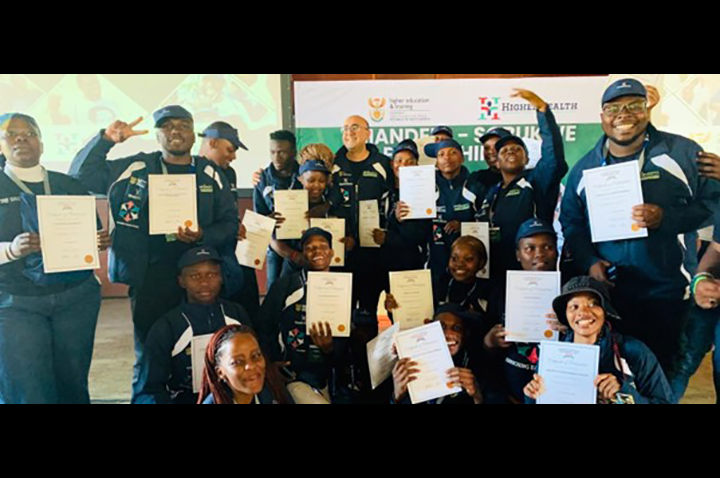 Office of the Dean of Students participates in leadership camp
Office of the Dean of Students participates in leadership camp
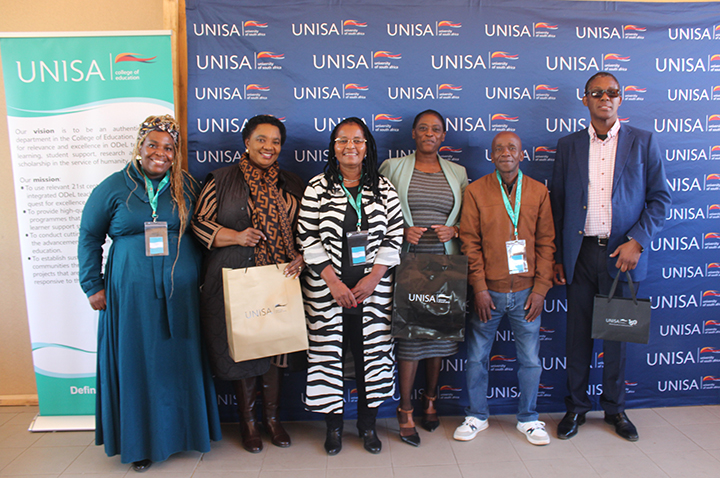 Unisa project fosters digital and pedagogical innovation in Limpopo schools
Unisa project fosters digital and pedagogical innovation in Limpopo schools
 Unisa student wins prestigious national leadership award
Unisa student wins prestigious national leadership award